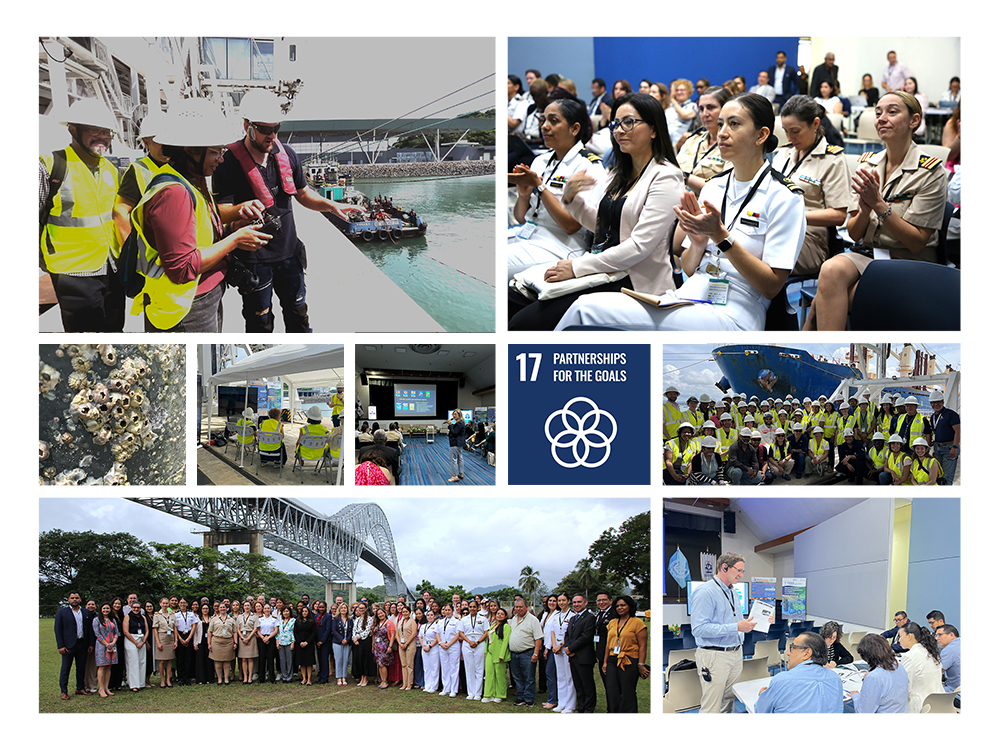When ships trade across the ocean, they can introduce invasive aquatic species (IAS) to new marine environments, posing one of the greatest threats to the world’s freshwater, coastal, and marine ecosystems.
Panama hosted a series of events for biofouling management specialists from Latin America and the Caribbean region (8-12 July), on how to mitigate the transfer of these invasive species via ships’ hulls or ballast water and how to help close the gender gap for women in biofouling.
The programme included a dedicated training course on biofouling risk assessment and inspection methodologies, equipping attendees with essential skills to manage biofouling.
During a visit to the Port of Balboa, some 100 participants witnessed in-water cleaning technology in action, allowing them to build deeper understanding of the complexity involved in biofouling management.
HullWiper Ltd, which is a member of the Global Industry Alliance for Marine Biodiversity showcased the deployment of its technology in the water, attachment to the vessel and the detailed functioning of its adjustable high pressure seawater jets to remove hull fouling.
A special workshop for Latin American and Caribbean Women in Maritime provided networking opportunities and professional development, aiming to empower women in the maritime industry and promote a diverse, skilled workforce. The workshop was co-financed by the Kingdom of Saudi Arabia.
The training series was organized by the IMO GloFouling Partnerships Project and TEST Biofouling project and hosted by the International Maritime University of Panama in collaboration with Maritime Technology Cooperation Centres (MTCCs) of Latin America and the Caribbean.
